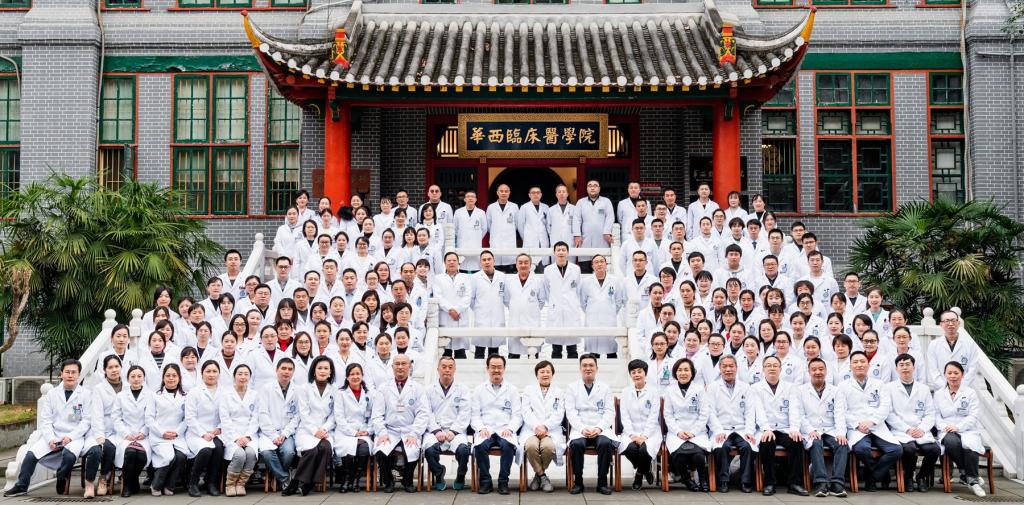Department of Clinical Laboratory Medicine, West China Hospital, Sichuan University
2024-06-26
The team's academic cooperation achievements and documents with the Department of Laboratory Medicine of West China Hospital of Sichuan University:
1. DNA framework signal amplification platform-based high-throughput systemic immune monitoring.pdf
The Department of Laboratory Medicine (Laboratory Department) of West China Hospital of Sichuan University was established in 2003. It is one of the earliest departments in China to realize the comprehensive integration of all clinical laboratory specialties and provide various clinical tests. The department consists of six sub-specialty laboratories: Clinical Biochemistry Laboratory, Clinical Examination and Hematology Laboratory, Clinical Microbiology Laboratory, Clinical Immunology Laboratory, Clinical Molecular Diagnosis Laboratory and Blood Transfusion and Blood Bank Laboratory. In 2010, it was rated as a key clinical laboratory by the Ministry of Health.
The department adheres to the purpose of serving the hospital's difficult disease diagnosis center, actively cooperates with clinical departments, builds disease diagnosis and treatment centers around single diseases, and combines international advanced experience to provide experimental support for clinical services. The department is committed to the integration of various professional technologies in clinical testing, breaking through the single test project reporting model, establishing multiple laboratory testing technology platforms, and forming a new medical testing platform system for the entire process from early screening to clinical treatment monitoring and prognosis judgment.
The Department of Experimental Medicine has established a comprehensive clinical medicine laboratory quality management system, has a high-quality professional technical team and optimized work processes, and adopts advanced working modes, such as the combined use of multiple automated analyzers of the same type, the connection between the intelligent LIS system and testing instruments, and the combined application of automated pre-treatment systems and automated analysis lines, ensuring the full quality control of testing and analysis.
In addition, the department is responsible for all clinical testing projects in the hospital, carrying out nearly 600 testing projects and testing more than 20,000 specimens per day on average. The department passed the US CAP medical laboratory accreditation in 2006 and passed the review with excellent results many times in the following years.
In terms of scientific research, the department has obtained 68 national projects and 71 provincial and ministerial projects in recent years, published 181 SCI papers, and participated in a number of national and provincial research projects. The department also actively participates in international academic exchanges, has submitted more than 300 papers to top international academic conferences, and has won many awards.
The Department of Experimental Medicine currently has 134 employees, including 29 senior professionals, 62 mid-level professionals, 25 PhD and above, 25 masters, 3 postdoctoral fellows, 11 master's supervisors, and 4 doctoral supervisors. The department has also established a cooperation platform with internationally renowned medical centers, such as the Erasmus Medical Center in the Netherlands and the Mayo Clinic in the United States.
In terms of education, the Department of Experimental Medicine is a faculty of the Department of Medical Laboratory Science of West China Medical College. It has the qualification to train doctors and masters in medical laboratory science, and undertakes the training and education of undergraduates, postgraduates, doctoral students, residents and trainees every year. The department also actively participates in textbook compilation and education development, exploring new directions for the training of various types of laboratory talents in my country.
Finally, the department actively spreads advanced testing technology to the grassroots level, pioneered the system of mentors for trainees, held national continuing education training courses, fully funded training for testing personnel in multi-ethnic areas and earthquake-stricken areas, and signed testing project commissioning agreements with a number of grassroots hospitals to strengthen the training of talents who can combine testing with clinical practice.



